Nuclear annihilation just one mistake away, UN chief Antonio Guterres says
The head of the UN has unleashed a sobering warning on the threat of nuclear warfare, adding “just one misunderstanding” could undo everything.
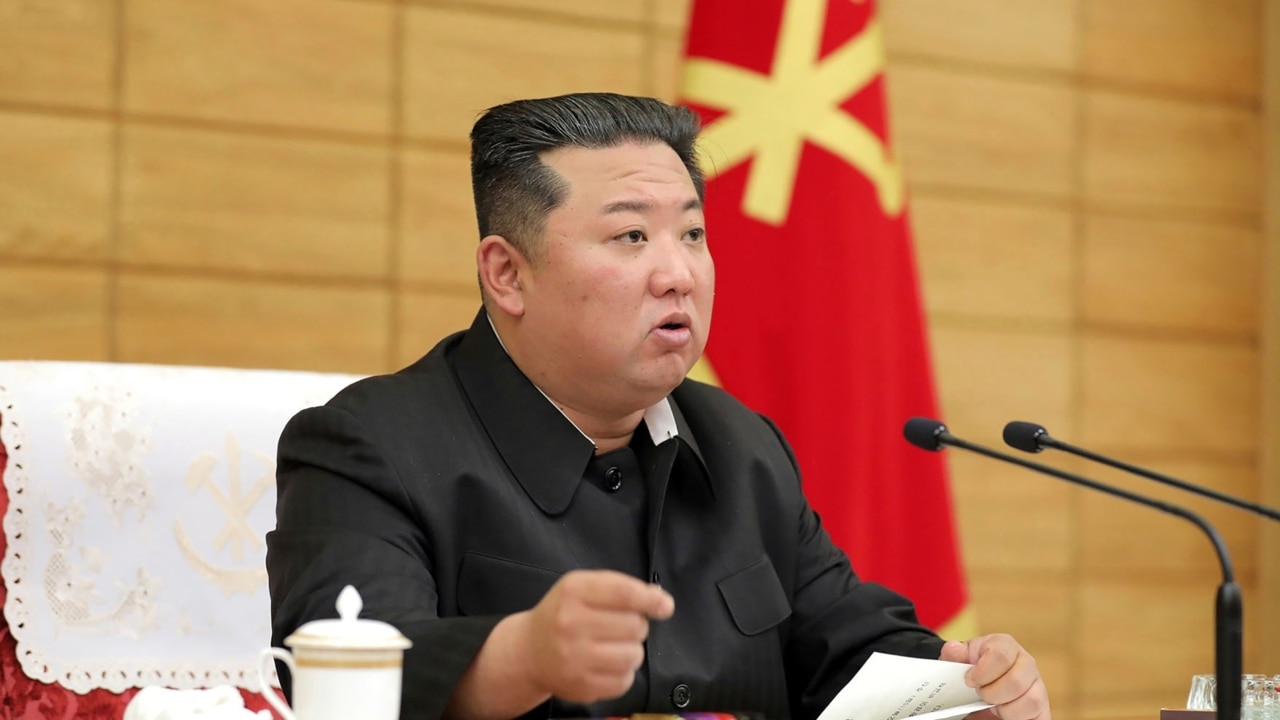
Technology
Don't miss out on the headlines from Technology. Followed categories will be added to My News.
United Nations Secretary-General Antonio Guterres has warned that one simple misunderstanding could spark all-out global nuclear war.
Speaking at the opening of a key nuclear Non-Proliferation Treaty (NPT) conference in New York on Monday, Mr Guterres warned that the world faced “a nuclear danger not seen since the height of the Cold War”.
Citing Russia’s war with Ukraine and tensions on both the Korean peninsula and in the Middle East, Mr Guterres said he feared that crises “with nuclear undertones” could escalate.
“Today, humanity is just one misunderstanding, one miscalculation away from nuclear annihilation,” Mr Guterres told the tenth review conference of the NPT, an international treaty that came into force in 1970 to prevent the spread of nuclear weapons.
“We have been extraordinarily lucky so far. But luck is not a strategy. Nor is it a shield from geopolitical tensions boiling over into nuclear conflict,” he said.
Stream more world news live & on demand with Flash. 25+ news channels in 1 place. New to Flash? Try 1 month free. Offer ends 31 October, 2022 >
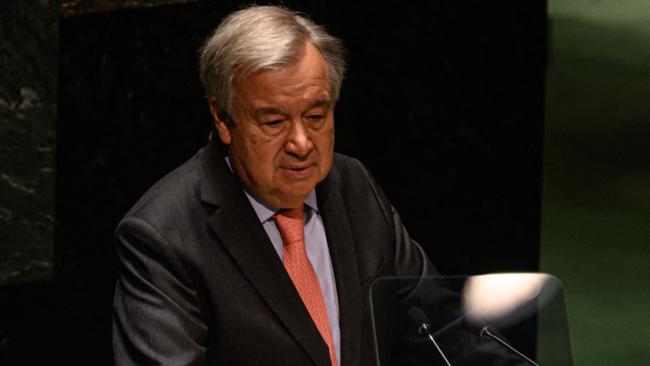
Mr Guterres also called on nations to “put humanity on a new path towards a world free of nuclear weapons”.
The meeting, held at the UN’s headquarters in New York, has been postponed several times since 2020 due to the Covid-19 pandemic. It will run until August 26.
Mr Guterres said the conference was “a chance to strengthen” the treaty and “make it fit for the worrying world around us”.
“Eliminating nuclear weapons is the only guarantee they will never be used,” he said, adding that he was scheduled to visit Hiroshima for the anniversary of the August 6, 1945 atomic bombing of the Japanese city by the United States.
“Almost 13,000 nuclear weapons are now being held in arsenals around the world. All this at a time when the risks of proliferation are growing and guardrails to prevent escalation are weakening,” Mr Guterres said.
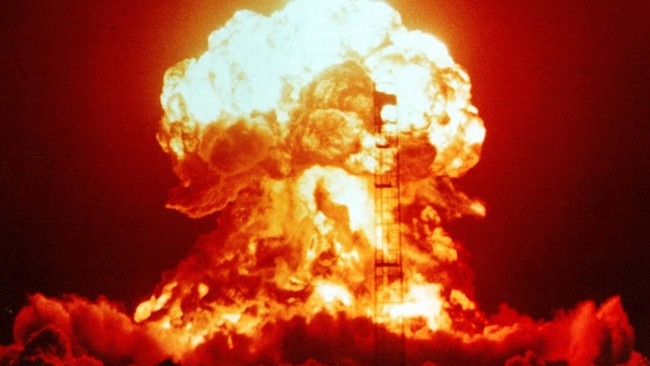
Iranian official says country could build bomb
This comes as Iran’s atomic energy chief Mohammad Eslami was quoted as saying that the Islamic Republic had the technical capacity to build atomic bombs, but has no intention of doing so.
The claims were also repeated by Kamal Kharrazi, senior adviser to the Supreme Leader Ayatollah Ali Khamenei.
“As Mr Kharrazi mentioned, Iran has the technical ability to build an atomic bomb, but such a program is not on the agenda,” Mr Eslami said.
According to the International Atomic Energy Agency (IAEA), the country has 43.1kg of uranium which has been enriched to 60 per cent purity. To make one nuclear bomb, the Wisconsin Project reports that around 15kg of uranium enriched to more than 90 per cent is needed.
While Iran claims its nuclear development is exclusively peaceful, and merely covers civilian work like medical and industrial research, the country has long created international anxiety with its nuclear program.
In 2015, Iran signed the Joint Comprehensive Plan of Action (JCPOA) along with several other countries including the US. The agreement meant Iran would need to dismantle its nuclear program and reduce its uranium stockpile by 98 per cent. In exchange, the other signatories would reduce their sanctions, like lifting oil exports and a UN ban on the transfer of conventional weapons and ballistic missiles.
However, by 2018 the deal collapsed after the US (under Donald Trump’s presidency) withdrew its support and reinstated the sanctions.
Since 2019, Iran has once again begun stockpiling low-enriched uranium, while also enriching uranium to higher concentrations.
Counties put pressure on Russia
In January, the five permanent members of the UN Security Council – the US, China, Russia, UK and France – had pledged to prevent the further dissemination of nuclear weapons.
On Monday, US, Britain and France reaffirmed their commitment in a joint statement, saying a “nuclear war cannot be won and must never be fought.”
The three also took aim at Russia, which announced it had placed its nuclear forces on alert shortly after its invasion of Ukraine on February 24, urging Moscow to respect its international commitments under the NPT.
“Following Russia’s unprovoked and unlawful war of aggression against Ukraine, we call on Russia to cease its irresponsible and dangerous nuclear rhetoric and behaviour,” they said.
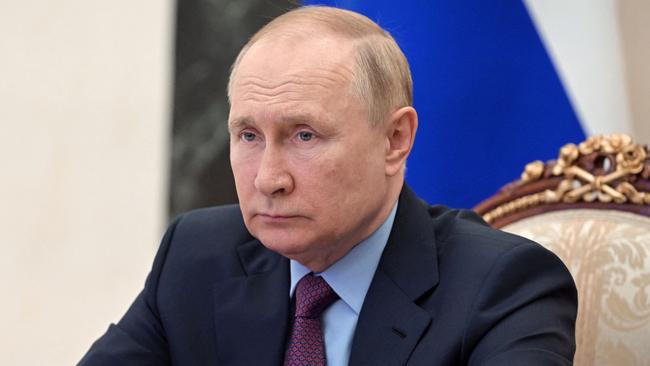
President Vladimir Putin insisted that Russia remained faithful to the treaty’s “letter and spirit” and that there could be “no winners” in a nuclear war, according to the Kremlin.
While many speeches focused on Russia, US Secretary of State Antony Blinken also denounced North Korea, which “continues to expand its unlawful nuclear program” and Iran, which “remains on a path of nuclear escalation”.
“And so we come together at a critical moment,” he said.
Earlier, in a statement, US President Joe Biden called on Russia and China to enter nuclear arms control talks.
The US leader reiterated that his administration is ready to “expeditiously negotiate” a replacement to New START, the treaty capping intercontinental nuclear forces in the US and Russia, which is set to expire in 2026.
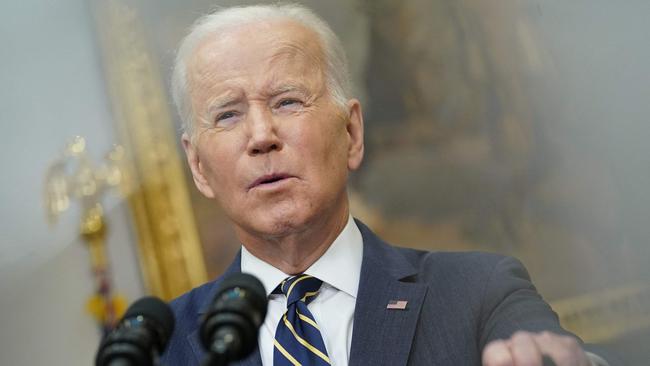
The NPT, which the 191 signatories review every five years, aims to prevent the spread of nuclear weapons, promote complete disarmament and promote co-operation in the peaceful use of nuclear energy.
At the last review conference in 2015, the parties were unable to reach agreement on substantive issues.
“Since then, the division within the international community has become only greater,” lamented Japanese Prime Minister Fumio Kishida.
“A path to a world without nuclear weapons has become even harder. Nevertheless giving up is not an option,” he said, addressing the chamber.
– with AFP
Originally published as Nuclear annihilation just one mistake away, UN chief Antonio Guterres says





